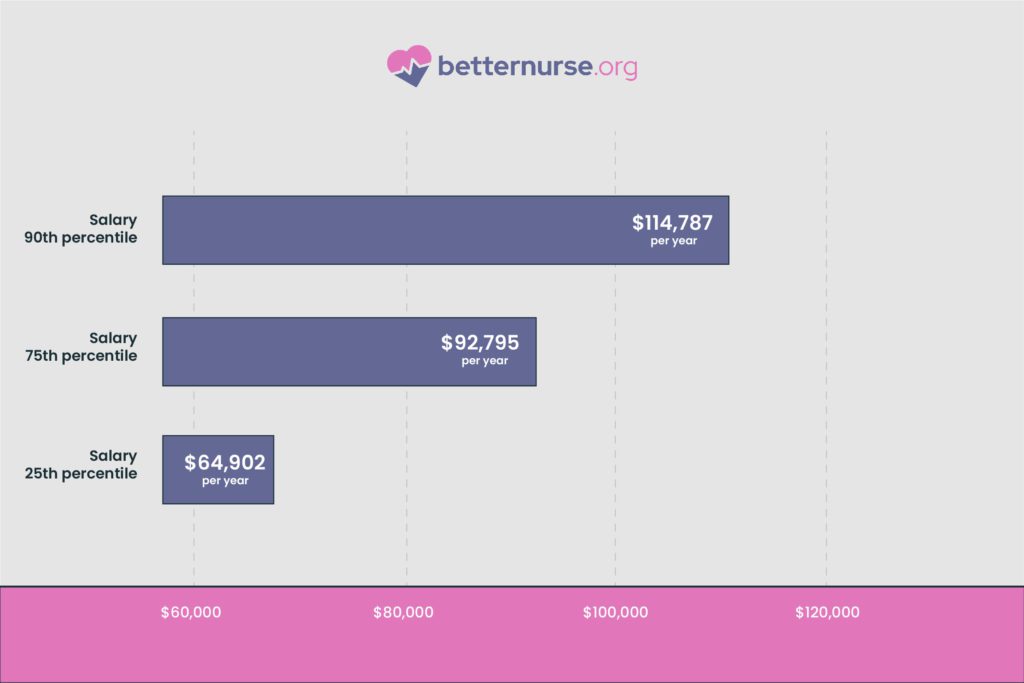To become a nurse in Massachusetts, aspiring individuals must complete a nursing program, pass the NCLEX exam, and obtain a Massachusetts nursing license.
Becoming a nurse in Massachusetts is an exciting and rewarding journey that requires dedication and a passion for helping others. If you aspire to join the healthcare field and provide compassionate patient care, understanding the steps to become a nurse in Massachusetts is essential. From completing the required education and passing the licensing exam to obtaining a Massachusetts nursing license, this guide will provide a comprehensive overview of the path to becoming a nurse in the state. Whether you are just starting your educational journey or considering a career change, this information will help you navigate the requirements and pursue your dream of becoming a nurse in Massachusetts.
Table of contents
- Takeway
- What Is the Massachusetts Board of Registration in Nursing?
- How To Become a Nurse in Massachusetts
- Getting Your Nursing License in Massachusetts
- Renewing Your Nursing License in Massachusetts
- How Long Does It Take To Become a Nurse in Massachusetts?
- Salary and Job Outlook for Nurses in Massachusetts
- Wrapping Up
Takeway

Becoming a nurse in Massachusetts is like embarking on a challenging yet immensely fulfilling expedition, where each step taken in education, licensing, and dedication paves the way to the peak of compassionate care.
What Is the Massachusetts Board of Registration in Nursing?
The Massachusetts Board of Registration in Nursing is a regulatory body that oversees the practice of nursing within the state. Its primary role is to ensure that nurses meet and maintain the necessary standards of competence and ethical conduct to provide safe and quality care to patients.
The board is responsible for licensing qualified individuals to practice nursing in Massachusetts, setting educational and examination requirements, and enforcing regulations and laws related to nursing practice. By establishing and upholding these standards, the Massachusetts Board of Registration in Nursing plays a vital role in safeguarding the health and well-being of the public and maintaining the integrity of the nursing profession in the state.
How To Become a Nurse in Massachusetts
Those interested in practicing their nursing profession in Massachusetts must go through these steps to achieve their goal:
Earn a degree
To become a nurse in Massachusetts, earning a degree in nursing is the first step. Prospective nurses can pursue an Associate Degree in Nursing (ADN) or a Bachelor of Science in Nursing (BSN) from an accredited nursing program. These programs provide essential theoretical knowledge and practical training through classroom instruction, laboratory work, and clinical rotations. Choosing a program that meets the requirements set by the Massachusetts Board of Registration in Nursing is crucial to ensure licensure eligibility.
Pass the NCLEX exam
After completing a nursing program, the next milestone is to pass the National Council Licensure Examination for Registered Nurses (NCLEX-RN). This standardized exam measures aspiring nurses’ competency and is required for obtaining a nursing license in Massachusetts. Thorough preparation through review courses, practice exams, and study materials is vital to succeed in the NCLEX-RN. It covers various topics related to nursing practice, including client needs, safety, pharmacology, and nursing procedures. Upon passing the exam, individuals become eligible to apply for licensure.
Apply for licensure
Applying for licensure is a crucial step in becoming a nurse in Massachusetts. The Massachusetts Board of Registration in Nursing handles the licensure process. Applicants must submit the necessary documentation, including an application form, transcripts from their nursing program, and proof of passing the NCLEX exam.
Additionally, applicants must undergo a criminal background check and may need to provide other supporting documents as requested by the board. It is essential to carefully follow the application instructions and meet all the requirements to ensure a smooth and timely licensure process.
Gain work experience
Once licensed, gaining work experience is integral to a nursing career in Massachusetts. New nurses often start by seeking employment in hospitals, clinics, nursing homes, or other healthcare settings. This hands-on experience provides opportunities to further develop clinical skills, enhance critical thinking abilities, and refine patient care techniques. Working alongside experienced healthcare professionals helps new nurses to navigate various patient scenarios, understand interdisciplinary collaboration, and familiarize themselves with the healthcare system.
Continuous learning and professional growth are essential throughout a nursing career, and gaining work experience is crucial to this journey in Massachusetts.
Getting Your Nursing License in Massachusetts
Getting your nursing license in Massachusetts is a pivotal achievement that signifies your eligibility and competence to practice nursing within the state. The Massachusetts Board of Registration in Nursing is responsible for evaluating your qualifications and ensuring you meet the necessary standards.
By successfully obtaining your nursing license, you gain the legal authorization to provide healthcare services, contribute to patient care, and positively impact the well-being of individuals and communities in Massachusetts. It is a significant milestone in your nursing career that opens doors to diverse employment opportunities and professional growth.
Renewing Your Nursing License in Massachusetts
Renewing your nursing license in Massachusetts is crucial to maintaining your status as a licensed nurse in the state. The Massachusetts Board of Registration in Nursing requires nurses to renew their licenses periodically to ensure ongoing competence and adherence to professional standards. The renewal process typically involves submitting an application, paying the required fees, and providing proof of meeting continuing education requirements.
It is essential to stay informed about the board’s specific renewal requirements and submit the necessary documentation before the expiration date. By renewing your nursing license, you demonstrate your commitment to professional development, stay current with evolving healthcare practices, and continue contributing to the nursing profession in Massachusetts.
How Long Does It Take To Become a Nurse in Massachusetts?
The time required to become a nurse in Massachusetts depends on various factors, including the educational path chosen and individual circumstances. Generally, it takes two to four years to complete an Associate Degree in Nursing program or four years for a Bachelor of Science in Nursing program.
After completing the required education, aspiring nurses must pass the National Council Licensure Examination for Registered Nurses (NCLEX-RN), which typically requires additional time for preparation. The preparation process for taking the NCLEX-RN can vary, but many individuals dedicate several weeks to several months for study and review. Once they pass the exam, individuals can apply for a nursing license in Massachusetts, which may take a few weeks to process.
Salary and Job Outlook for Nurses in Massachusetts

According to data from ZipRecruiter, as of June 4, 2023, the average annual pay for a registered nurse (RN) in Massachusetts is $84,570. This translates to approximately $40.66 per hour, $1,626 per week, or $7,047 monthly. The salary range for RNs in Massachusetts varies, with salaries as high as $138,389 and as low as $38,084. The majority of RN salaries fall between $64,902 (25th percentile) and $92,795 (75th percentile), with top earners (90th percentile) making $114,787 annually.
The variation in pay suggests opportunities for advancement and increased compensation based on skill level, location, and years of experience. Massachusetts ranks number 4 out of 50 states nationwide for RN salaries.
According to the Bureau of Labor Statistics (BLS), the job outlook for nurses in Massachusetts is positive. Employment of registered nurses is projected to grow by 6 percent from 2021 to 2031. This growth is primarily due to the increasing demand for healthcare services due to the aging population. Older individuals typically have more medical needs, leading to a greater need for healthcare professionals, including registered nurses. Furthermore, there is a growing demand for nurses to educate and care for patients with chronic conditions such as diabetes and obesity.
Wrapping Up
Becoming a nurse in Massachusetts is a rewarding and fulfilling journey that requires dedication, education, and a commitment to providing compassionate care. By following the necessary steps, such as completing an approved nursing program, passing the NCLEX exam, and obtaining a Massachusetts nursing license, individuals can embark on a career that positively impacts the lives of patients and the healthcare community.
While the path to becoming a nurse may take a few years, the opportunity for personal and professional growth and the potential for advancement and competitive salaries make it a worthwhile endeavor. Whether you are just beginning your educational journey or considering a career change, becoming a nurse in Massachusetts opens doors to a fulfilling and meaningful career in the healthcare field.

Nurse Luke is a CRNA who specializes in Nursing content and still enjoys a very busy career with Locum, Per Diem and Travel nursing in the greater midwest. He has over 25 years of experience in the healthcare field and received his CRNA masters degree from the Mayo Clinic School of Healthcare. He is passionate about helping nurses explore the options of becoming a travel nurse as well as spending time with his Family.



